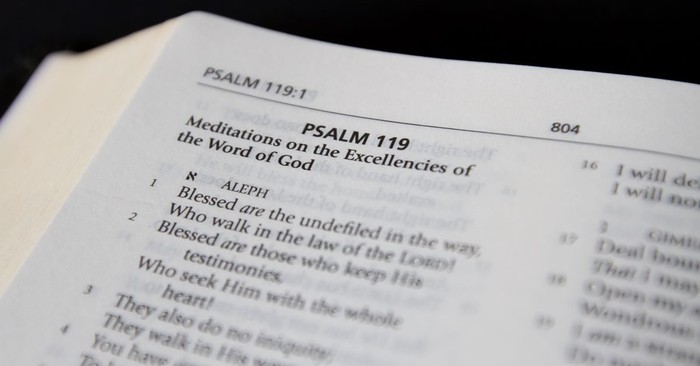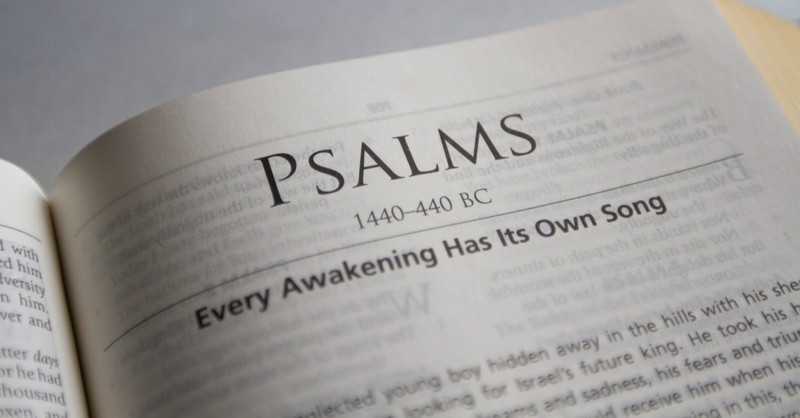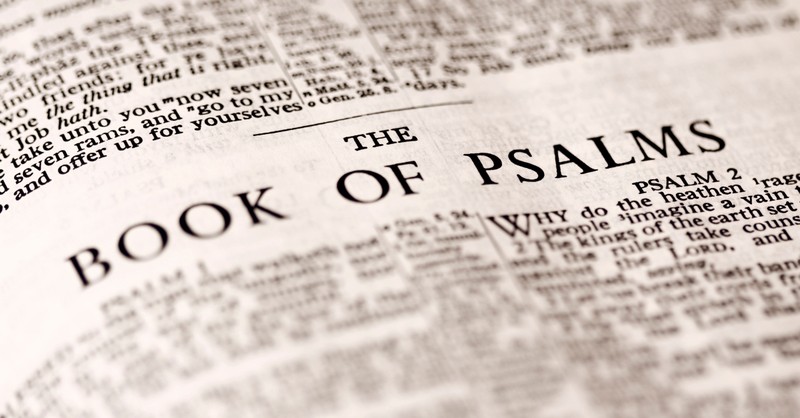
Most often, when we think of the Book of Psalms, we think of King David. While David wrote numerous psalms, he did not write the entire book of Psalms. Most of the writers have been identified, yet many are anonymous, and we cannot be dogmatic about their identities. The known Psalmists include King David, Asaph, the sons of Korah, Heman, Solomon, Moses, and Ethan the Ezrahite.
Photo Credit: ©SparrowStock
King David
King David is credited as the main writer of the Psalms. There are seventy-five psalms scholars believe David authored, including Psalms 3-9, 11-32, 34-41, 51-65, 68-70, 86, 101, 103, 108-110, 122, 124, 131, 133, and 138-145. My personal favorite of David’s is Psalm 23. This psalm brought great peace and serenity into my soul after my mother passed. Whenever you need to be reminded of God’s everlasting presence, turn to Psalm 23.
Asaph and His Sons
Asaph was a Levite and leader in the tabernacle. 1 Chronicles 6:31-32 describes these tabernacle leaders as "men David put in charge of the music in the house of the Lord after the ark came to rest there. They ministered with music before the tabernacle, the tent of meeting, until Solomon built the temple of the Lord in Jerusalem. They performed their duties according to the regulations laid down for them.”
Since we know David appointed Asaph as one of the tabernacle leaders, we are confident David greatly trusted him to carry out the worship of the Lord. Meanwhile, Asaph is relatable because he struggled with many thoughts that we do, like why do the wicked flourish? Asaph writes, “For I envied the arrogant when I saw the prosperity of the wicked. They have no struggles; their bodies are healthy and strong. They are free from common human burdens; they are not plagued by human ills” (Psalm 73:3-5). We can empathize with Asaph and understand the humanity of the psalmist as his songs display the same worries, thoughts, and questions we battle.
However, due to Asaph's love for the Lord, he was inspired by the Holy Spirit to write many psalms. Asaph wrote twelve psalms, including Psalm 50 and Psalms 73-83. Asaph’s children also wrote many of the psalms credited to Asaph. Following in the footsteps of their father, Asaph’s sons were skilled writers, singers, and musicians. Their love and gift for music flourished through their songwriting and worship of the Lord.
In Psalm 50, Asaph writes, “The Mighty One, God, the Lord, speaks and summons the earth from the rising of the sun to where it sets. From Zion, perfect in beauty, God shines forth. Our God comes and will not be silent; a fire devours before him, and around him a tempest rages." Here, Asaph praises God’s power and majesty. Throughout Asaph’s psalms (and the psalms of his children), we see consistent praise of God, proper worship of His divinity, and a recount of God’s past wonders. When we need encouragement, we must turn to the psalms written by Asaph and his children to recall God's goodness and faithfulness.

Sons of Korah
The sons of Korah are credited with writing Psalms 42, 44-49, 84-85, and 87-88. They encouraged listeners to recall God's proven faithfulness and provision. They write, “We have heard it with our ears, O God; our ancestors have told us what you did in their days, in days long ago. With your hand you drove out the nations and planted our ancestors; you crushed the peoples and made our ancestors flourish. It was not by their sword that they won the land, nor did their arm bring them victory; it was your right hand, your arm, and the light of your face, for you loved them” (Psalm 44:1-3).
In this specific psalm, the sons of Korah are pushing Israel to remember God’s mighty works in the past. Just as God had saved them before, He would rescue them again. The same theme radiates through Psalm 84:1-2, where the sons of Korah say, “How lovely is your dwelling place, Lord Almighty! My soul yearns, even faints, for the courts of the Lord; my heart and my flesh cry out for the living God.”
May we all praise the Lord with the same love and devotion as the sons of Korah.
Heman
Heman wrote only one psalm, Psalm 88, with the help of the sons of Korah. This psalm resonates deeply with me as Heman writes, “I am overwhelmed with troubles and my life draws near to death. I am counted among those who go down to the pit; I am like one without strength. I am set apart with the dead, like the slain who lie in the grave, whom you remember no more, who are cut off from your care” (Psalm 88:3-5).
As someone who struggles with depression, this Psalm is one I easily relate to. Maybe you struggle with depression or feelings of anxiety. Heman reminds us that feeling this way is normal, but we must remember to turn to the Lord. While God doesn’t promise to take away these feelings and pain, He can hold us up with His mighty hand. Psalm 88 helps us better reflect on God in the midst of our struggles and darkest days.
Photo Credit: ©Sparrowstock
Solomon
Solomon wrote two Psalms. The psalms he wrote were Psalms 72 and 127. Solomon was the son of King David. After his father passed away, Solomon became king. Solomon was known to be blessed with great wisdom, which was given to him by God. Solomon’s wisdom is shown in his psalms and reflections on the Lord. In Psalm 72, Solomon writes, “For he will deliver the needy who cry out, the afflicted who have no one to help. He will take pity on the weak and the needy and save the needy from death. He will rescue them from oppression and violence, for precious is their blood in his sight” (12-14).
Psalm 72 includes the prophecy of Jesus’ thousand-year reign. Even though Solomon was a king at the time he wrote this psalm, he was looking forward to the day of the future King, who would reign victorious for all eternity. If you are in need of hope for the future, reflect on Psalm 72. Solomon points us to the truth of Jesus’ righteous reign over all.
Moses
Moses wrote one psalm, Psalm 90. Here, Moses expresses deep anguish as he cries out to the Lord, “Relent, Lord! How long will it be? Have compassion on your servants. Satisfy us in the morning with your unfailing love, that we may sing for joy and be glad all our days” (Psalm 90:13-14). Moses is petitioning God to once again have mercy on His children. The Lord hears every prayer of ours, including Moses’ psalm crying out to the Lord.
However, Psalm 60 also declares the praise and faithfulness of the Lord. He gives glory to the Lord by declaring, “Lord, you have been our dwelling place throughout all generations. Before the mountains were born or you brought forth the whole world, from everlasting to everlasting you are God” (Psalm 90:1-2). Moses praises the Lord for His steadfast loyalty to Israel.

Ethan the Ezrahite
Like Moses, Ethan the Ezrahite wrote one psalm, Psalm 89. Ethan gives praise and glory to God for all of His wonders. God’s righteousness is magnified when Ethan writes, “Righteousness and justice are the foundation of your throne; love and faithfulness go before you. Blessed are those who have learned to acclaim you, who walk in the light of your presence, Lord. They rejoice in your name all day long; they celebrate your righteousness” (Psalm 89:14-16).
Ethan’s psalm also cries out to God and asks how long the people will have to suffer in pain (Psalm 89:46-52). Despite Ethan not receiving an immediate, clear answer, he still gives praise to God. In our own lives, we need to remember to give praise to God even if He doesn’t answer our prayers when we would like or how we would like. We must rely on the goodness of God's nature and trust that God will answer in time, but it will be the right time.
In the waiting, let's live as Ethan the Ezrahite and focus on the Lord, giving Him praise for who we know Him to be.
Anonymous
The remaining forty-eight Psalms are anonymous. We do not know who wrote these psalms, yet we know they were inspired by the Holy Spirit. In all of the writings of the Bible, we know God is the ultimate Author, even if we don’t know, or can't prove, the human author who physically wrote down the words.
What we do know is that God's Word is alive, Spirit-breathed, and true, which means we can trust the truth nestled in each psalm, no matter the human composer. The Book of Psalms is, no doubt, a beautiful book filled with deep truths about God, mankind, and rejoicing despite suffering. If you ever find yourself in a Bible-reading rut, I encourage you to start with a psalm a day. You will be amazed at the conviction, wisdom, and encouragement your soul will receive.
Photo Credit: ©Getty/CaseyHillPhoto
Originally published Monday, 17 October 2022.









